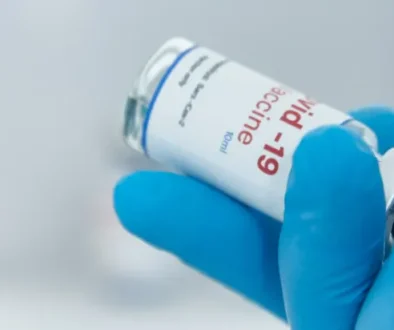PVS Memorial Hospital: A Beacon of Hope or Hype?
Unpacking the Legacy of PVS Memorial Hospital
PVS Memorial Hospital has long been regarded as a cornerstone in the healthcare landscape, boasting state-of-the-art facilities and a team of highly skilled medical professionals. The hospital’s legacy is built on a foundation of pioneering medical treatments and a patient-first approach, which has set a benchmark for healthcare providers across the region. However, in the competitive realm of healthcare, the distinction between quality and mere reputation can sometimes blur, prompting a deeper investigation into whether PVS Memorial stands as a beacon of hope or is enveloped in unwarranted hype.
The hospital’s history is punctuated with numerous accolades and certifications that speak to its commitment to excellence in healthcare services. From cutting-edge surgical procedures to comprehensive care models, PVS Memorial has showcased its capacity to adapt and innovate, keeping patient well-being at its core. Yet, the true measure of a hospital’s legacy lies not just in its achievements but in its ability to consistently meet and exceed patient expectations.
Critics argue that resting on laurels can lead to complacency, suggesting that the hospital must continue to evolve and address the ever-changing needs of its patients. The challenge for PVS Memorial, then, is to balance its storied history with the imperative of ongoing improvement and innovation in healthcare delivery. This balance is crucial in maintaining its position as a leader in the field and living up to the legacy it has created.
A Closer Look at Patient Satisfaction Rates
Assessing the Quality of Healthcare Services
Quality healthcare is a multifaceted concept that encompasses a range of factors, from the technical proficiency of medical staff to the cleanliness of facilities and the efficiency of service delivery. At PVS Memorial Hospital, the quality of healthcare services is often highlighted as a key differentiator. Patient satisfaction surveys frequently cite the hospital’s attentive staff, modern equipment, and the holistic approach to patient care as significant contributors to their positive experiences.
However, the narrative is not uniformly positive. Some patients have voiced concerns over long wait times and a perceived lack of personalized attention in certain departments. These discrepancies in patient experiences point to areas where the hospital could further refine its operations to ensure that high standards are uniformly met across all service areas. Continuous quality improvement is essential in healthcare, and patient feedback should be a cornerstone of any hospital’s strategy to enhance service delivery.
The economic implications for patients also play a crucial role in assessing the overall quality of healthcare services. PVS Memorial’s commitment to providing affordable care without compromising on quality is commendable, yet the rising costs of healthcare globally necessitate a sustained effort to keep services accessible to all. Balancing affordability with high-quality care remains a critical challenge for the hospital, impacting patient satisfaction and the perception of value.
The Economic Implications for Patients
The affordability of healthcare services is a pressing concern for many patients, influencing their decisions on where and when to seek medical care. PVS Memorial Hospital has made strides in making healthcare more accessible through various financing options and packages designed to alleviate the financial burden on patients. These initiatives are crucial in a world where the cost of medical care can deter individuals from seeking necessary treatment.
Insurance partnerships and subsidized rates for low-income patients are examples of how PVS Memorial is trying to bridge the gap between high-quality care and economic feasibility. Yet, the effectiveness of these measures is often contingent on broader economic factors and healthcare policies that are beyond the hospital’s control. As such, while the hospital’s efforts are noteworthy, the challenge of making healthcare universally affordable remains daunting.
The economic implications for patients extend beyond the cost of treatment to include the long-term financial impact of healthcare. For chronic conditions or complex surgeries, this can mean ongoing expenses that strain personal finances. PVS Memorial’s approach to patient education and preventive care is a step in the right direction, potentially reducing long-term healthcare costs for patients. Still, a more integrated approach involving stakeholders across the healthcare spectrum is necessary to address the economic challenges facing patients comprehensively.
Concluding Thoughts: Hope or Mere Hype?
In the final analysis, PVS Memorial Hospital embodies both hope and the challenges inherent in modern healthcare. The hospital’s legacy, built on a foundation of excellence and innovation, positions it as a beacon of hope for many seeking quality medical care. Patient satisfaction rates, while generally high, underscore the importance of addressing the nuanced expectations and experiences of all patients to maintain this standing.
The quality of healthcare services at PVS Memorial is a testament to the hospital’s commitment to patient well-being, yet continuous improvement is vital in an industry characterized by rapid advancements and shifting patient needs. Economic factors further complicate the landscape, with the hospital making commendable efforts to balance quality care with affordability.
Ultimately, PVS Memorial Hospital stands more as a beacon of hope than mere hype, provided it remains steadfast in its mission to deliver exceptional healthcare while adapting to the evolving demands of patients and the broader healthcare environment. The journey ahead is complex, but with a legacy of resilience and innovation, PVS Memorial is well-equipped to navigate the future of healthcare.

